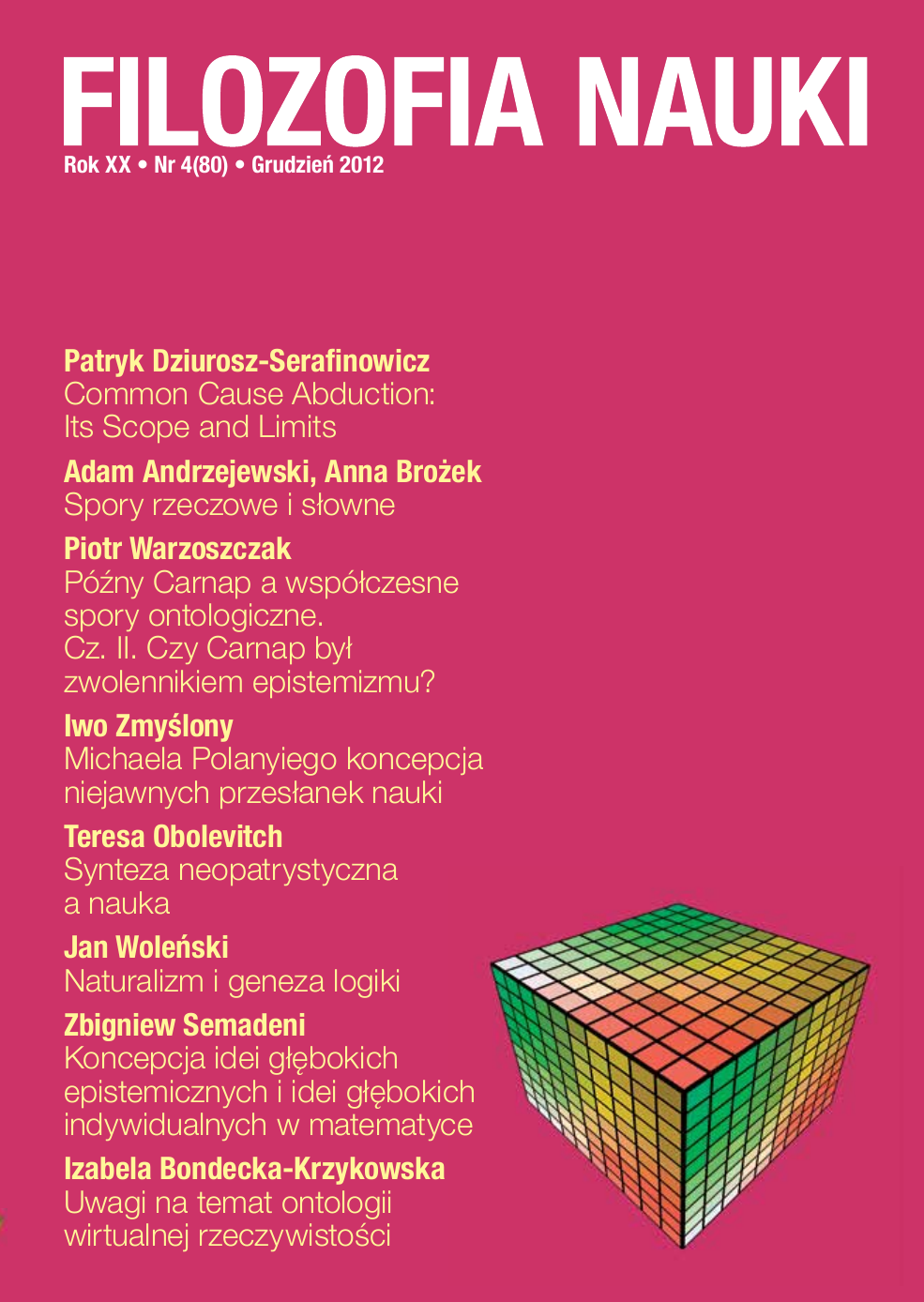Common Cause Abduction: Its Scope and Limits
Słowa kluczowe:
abduction, common cause, reasoning, likelihood, simplicity, bayesianismAbstrakt
This article aims to analyze the scope and limits of common cause abduction which is a version of explanatory abduction based on Hans Reichenbach’s Principle of the Common Cause. First, it is argued that common cause abduction can be regarded as a rational inferential mechanism that enables us to accept hypotheses that aim to account for the surprising correlations of events. Three arguments are presented in support of common cause abduction: the argument from screening-off, the argument from likelihood, and the argument from simplicity. Second, it is claimed, that common cause abduction is a defeasible reasoning, i.e., common cause abductive hypotheses are not always more plausible than separate cause abductive hypotheses. Finally, it is outlined what factors should be taken into account in order to use common cause abduction in a reasonable way.Pobrania
Opublikowane
2012-12-01
Jak cytować
Dziurosz-Serafinowicz, P. (2012). Common Cause Abduction: Its Scope and Limits. Filozofia Nauki, 20(4), 5–29. Pobrano z https://www.fn.uw.edu.pl/index.php/fn/article/view/694
Numer
Dział
Artykuły















 Filozofia Nauki | ISSN 1230-6894 | e-ISSN 2657-5868
Filozofia Nauki | ISSN 1230-6894 | e-ISSN 2657-5868